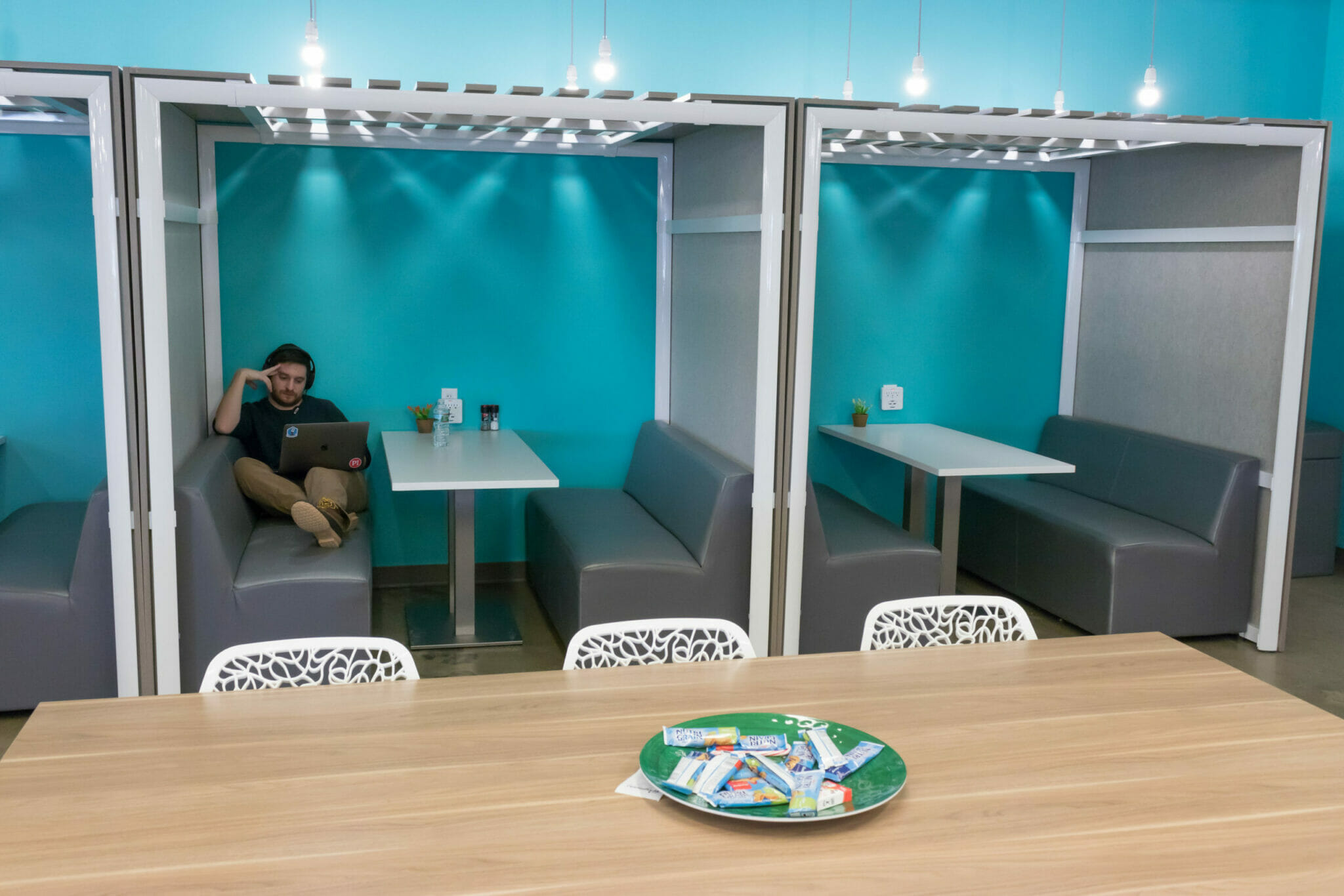People aren’t getting enough sleep these days. The National Sleep Foundation says that the typical working adult aged 26-64 needs at least seven to nine hours of sleep per night, but most people get far less shut-eye, whether because of an early commute or staying up late to get personal tasks done before bed.
While American business culture typically fosters a “work hard, play hard” credo that treats sleep deprivation as a badge of honor, your company culture should aim to do the exact opposite. Lack of sleep puts your employees at risk for high blood pressure, diabetes, stroke, and other health problems—none of which result in a healthy, productive workforce.
Getting plenty of sleep causes productivity to skyrocket.
It’s been estimated that 29% of all workers fall asleep on the job, costing at least $63 million a year in productivity. But if employees get enough sleep in the first place, this can be mitigated. Here’s why:
Your memory sharpens.
If your employees are sleep-deprived, they’re eventually going to have trouble remembering important things like meeting times, memos, your client’s favorite restaurants, and other important things that keep your organization running. Proper sleep makes for better memory.
You’ll be more alert.
Do you want a total zombie answering the phone or entering data on those important spreadsheets? Getting enough sleep will make you more alert than all the coffee in the world. This is especially important for jobs that depend on your employees jumping to situations requiring their attention immediately, such as nurses and security personnel.
Proper sleep makes for happier people.
Sleep deprivation does not make for a happy camper, and you want your employees to be as happy as possible. The mail clerk maybe doesn’t actually hate Linda in accounting, but is just in a bad mood all the time due to not getting enough sleep. You can’t prevent all interpersonal problems among your staff, but chances are frosty relations could improve if moods are lifted on account of getting more sleep.

How can I help my employees get more sleep?
While you have no control over your employees’ commute times and responsibilities they have outside of work, you should ask yourself what you’re doing to foster healthy workplace culture that includes giving your employees the opportunity to get plenty of rest.
- Offer telecommute options. If you’re unable to offer 100% telecommute, see if you can do this for a few days per week for your employees. By simply eliminating the obligation to commute can give employees just an extra hour or two to get some much-needed rest and really be able to crush it as a result.
- Consider adding a nap room in the office. Naptime at the office was ridiculed at one time, but sleep doctors are reporting massive benefits. By allowing employees to take a workplace-sanctioned nap—instead of sneaking in a desk nap after a big lunch or bleary-eyed commute—it helps make up that sleep deficit they may be unable to avoid on account of things like long commutes and childrearing.
- Flexible work schedules. Some people are simply night owls by nature and feel stifled by a 9-5 schedule, especially if they have to get up very early just to get to work. Flexible work schedules can ensure your employees are at work during business hours but also in what’s traditionally off schedule to take care of tasks that can be done at any time of the day. They can sleep when their bodies tell them to and deliver for you more than ever once their circadian rhythms are happy.
Having your employees get more shut-eye is just one way to increase productivity. Check out how you can fight against employee disengagement in this blog.








